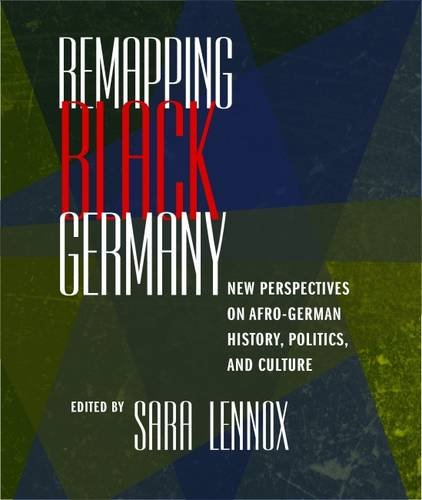Race and Ethnicity: Constancy in Change (First Edition)
Cognella Academic Publishing
2017
372 pages
Paperback ISBN: 978-1-63487-489-2
Edited by:
Milton Vickerman, Associate Professor of Sociology
University of Virginia
Hephzibah V. Strmic-Pawl, Assistant Professor of Sociology
Manhattanville College, Purchase, New York

Race and Ethnicity: Constancy in Change uses both classic readings and new research on contemporary racial inequality to create a logical progression through the primary issues of race and ethnicity.
The nine sections discuss the history of race and racism, define major concepts, and analyze how and why inequality persists. In addition to the readings, the anthology features introductions that frame each section’s readings, key terms with which students should be familiar, learning objectives for each section, and Reflect and Consider inquiries designed for each reading. Each section ends with a Highlight that showcases a contemporary racial trend in the news. The sections are also supplemented by Read, Listen, Watch, Interact! features, which supply easily accessible links to complementary readings, audio stories, videos, and interactive websites. The book concludes with Investigate Further, a list of readings for those who wish to delve deeper into a particular topic.
Race and Ethnicity enables students to grasp the fundamentals of race and racism and encourages them to engage in conversations about them. Ideal for sociology programs, the anthology is well-suited to courses on race and ethnicity.
Table of Contents
- RACE & ETHNICITY: WHY IT MATTERS / MILTON VICKERMAN AND HEPHZIBAH V. STRMIC-PAWL
- KEY TERMS
- PART 1 THE FOUNDATIONS OF RACE
- READING 1.1 Race BY PETER WADE
- READING 1.2 AAA Statement on Race BY AMERICAN ANTHROPOLOGICAL ASSOCIATION
- HIGHLIGHT: Eugenics are Alive and Well in the United States BY PAUL CAMPOS, TIME
- PART 2 THE SOCIAL CONSTRUCTION OF RACE
- READING 2.1 Immigrants and the Changing Categories of Race BY KENNETH PREWITT
- READING 2.2 The Theory of Racial Formation BY MICHAEL OMI AND HOWARD WINANT
- HIGHLIGHT: Why Do So Many Americans Think They Have Cherokee Blood: The History of a Myth BY GREGORY D. SMITHERS, SLATE
- PART 3 STRUCTURING AMERICAN IDENTITY THROUGH IMMIGRATION
- READING 3.1 The United States: A Nation of Immigrants BY PETER KIVISTO
- READING 3.2 The Three Phases of US Bound Immigration BY ALEJANDRO PORTES AND RUBEN RUMBAUT
- READING 3.3 The Ideological Roots of the “Illegal” as Threat and the Boundary as Protector BY JOSEPH NEVINS
- READING 3.4 Segmented Assimilation Revisited: Types of Acculturation and Socioeconomic Mobility in Young Adulthood BY MARY C. WATERS, VAN C. TRAN, PHILIP KASINITZ, AND JOHN H. MOLLENKOPF
- READING 3.5 Immigration Patterns, Characteristics, and Identities BY ANNY BAKALIAN & MEHDI BOZORGMEHR
- READING 3.6 The Reality of Asian American Oppression BY ROSALIND CHOU AND JOE FEAGIN
- HIGHLIGHT: Future Immigration Will Change the Face of America by 2065 BY D’VERY COHN, PEW RESEARCH CENTER
- PART 4 RACISM: THEORIES FOR UNDERSTANDING
- READING 4.1 The Nature of Prejudice BY PETER ROSE
- READING 4.2 Racism without Racists: “Killing Me Softly” with Color Blindness BY EDUARDO BONILLA-SILVA AND DAVID G. EMBRICK
- READING 4.3 Colorstruck BY MARGARET HUNTER
- READING 4.4 The White Supremacy Flower: A Model for Understanding Racism BY HEPHZIBAH V. STRMIC-PAWL
- READING 4.5 Family Law, Feminist Legal Theory, and the Problem of Racial Hierarchy BY TWILA L. PERRY
- HIGHLIGHT: Yes, All White People Are Racists— Now Let’s Do Something About It BY TIM DONOVAN, ALTERNET
- PART 5 STRUCTURED RACIAL INEQUALITY
- READING 5.1 The American Dream of Meritocracy BY HEATHER BETH JOHNSON
- READING 5.2 Racial Orders in American Political Development BY DESMOND S. KING AND ROGERS M. SMITH
- READING 5.3 Migration and Residential Segregation BY JOHN ICELAND
- READING 5.4 “White, Young, Middle Class”: Aesthetic Labor, Race and Class in the Youth Labor Force BY YASEMIN BESEN-CASSINO
- READING 5.5 Why Both Social Structure and Culture Matter in a Holistic Analysis of Inner-City Poverty BY WILLIAM JULIUS WILSON
- HIGHLIGHT: Nine Charts About Wealth Inequality in America BY THE URBAN INSTITUTE
- PART 6 RACISM IN POPULAR CULTURE
- READING 6.1 The Revolution Will Not Be Available on iTunes: Racial Perspectives BY DUSTIN KIDD
- READING 6.2 Racial Exclusion in the Online World BY REBECCA J. WEST AND BHOOMI THAKORE
- READING 6.3 Fear Of A Black Athlete: Masculinity, Politics and The Body BY BEN CARRINGTON
- READING 6.4 The Native American Experience: Racism and Mascots in Professional Sports BY KRYSTAL BEAMON
- HIGHLIGHT: Pop Culture’s Black Lives Matter Moment Couldn’t Come at a Better Time BY STEVEN W. THRASHER, THE GUARDIAN
- PART 7 CONTEMPORARY SYSTEMS OF OPPRESSION
- READING 7.1 The State of Our Education BY TERENCE FITZGERALD
- READING 7.2 The Immigration Industrial Complex BY TANYA GOLASH-BOZA
- READING 7.3 Evading Responsibility for Green Harm: State Corporate Exploitation of Race, Class, and Gender Inequality BY EMILY GAARDER
- HIGHLIGHT: 5 Links Between Higher Education and the Prison Industry BY HANNAH K. GOLD, ROLLING STONE
- PART 8 THE FUTURE OF RACE
- READING 8.1 Liminality in the Multiracial Experience: Towards a Concept of Identity Matrix BY DAVID L. BRUNSMA, DANIEL J. DELGADO, AND KERRY ANN ROCKQUEMORE
- READING 8.2 Race and the New Bio-Citizen BY DOROTHY ROBERTS
- READING 8.3 A Post-Racial Society? BY KATHLEEN FITZGERALD
- HIGHLIGHT: Choose Your Own Identity BY BONNIE TSUI, THE NEW YORK TIMES MAGAZINE
- PART 9 FIGHTING RACIAL INEQUALITY
- READING 9.1 The Problem of The Twentieth Century is The Problem of The Color Line BY W.E.B. DU BOIS
- READING 9.2 The Optimism of Uncertainty BY HOWARD ZINN
- READING 9.3 Why We Still Need Affirmative Action BY ORLANDO PATTERSON
- HIGHLIGHT: The Case for Reparations BY TA-NEHISI COATES, THE ATLANTIC
- INVESTIGATE FURTHER






